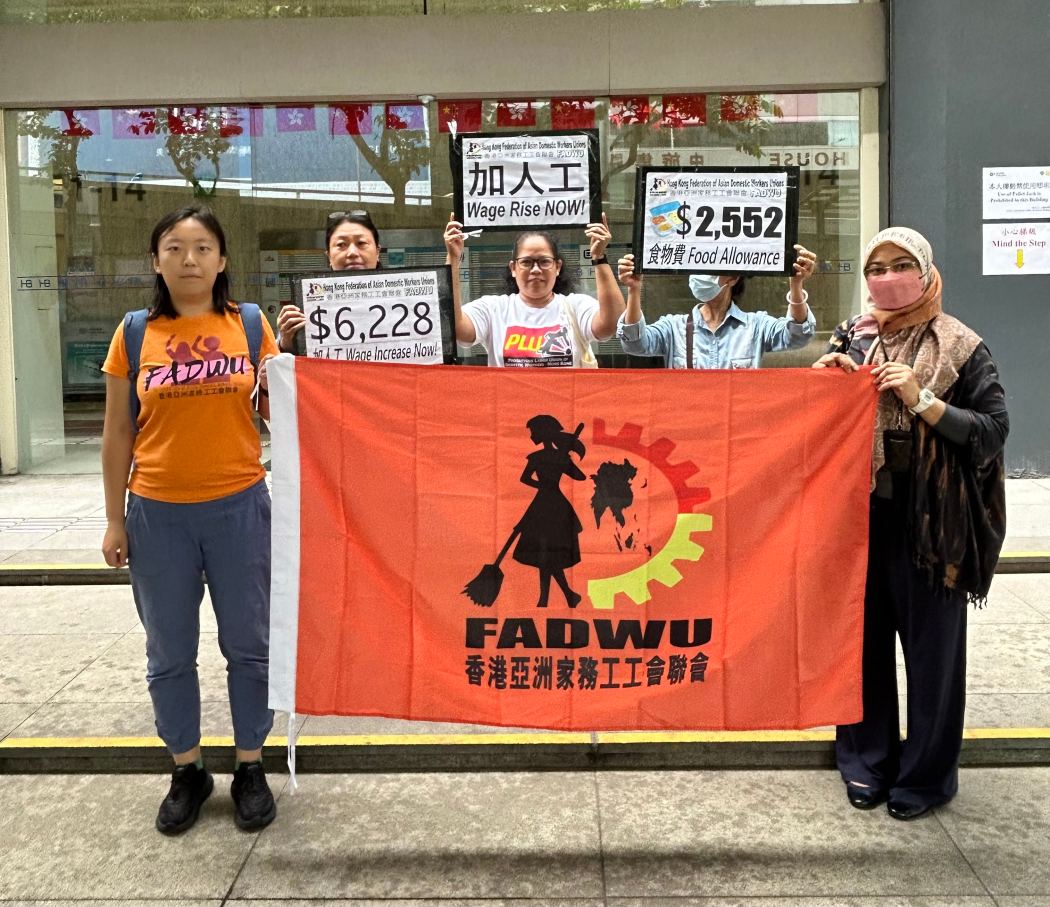Domestic worker unions in Hong Kong have urged authorities to raise their minimum monthly wage to more than HK$6,000, citing their contributions to society and rising inflation.

The Asian Migrants’ Coordinating Body (AMCB) and the Hong Kong Federation of Asian Domestic Workers Unions (FADWU) urged the government to increase the minimum wage to HK$6,106 and HK$6,228, respectively. Their calls came ahead of an annual review.
The current minimum wage for domestic workers is HK$4,730 per month. It was increased by HK$100 last year after being frozen since 2019, with the government pointing to the impact of Covid-19 on Hong Kong’s economic outlook.
“Migrant domestic workers contribute greatly to [Hong Kong] society. Around half of their wages go to local expenses, such as food, transportation, etc,” the AMCB wrote in a statement released on Wednesday.
The group added that amid inflation and high living costs, the current minimum wage was “not enough to live decently in Hong Kong.”
FADWU said on Wednesday that migrant domestic workers were experiencing “real wage loss.”
“During the pandemic our conditions worsened,” said Maria Ana of FADWU. “Many of us had longer working hours, less holidays and unfairly borne the costs of our quarantine. Some of us lost our jobs for catching… Covid. But our earnings are getting less and less.”
Under contracts for hiring domestic workers, employers must provide workers with food or pay them a minimum monthly food allowance of HK$1,196.
AMCB called on the government to raise the allowance to HK$3,065, while FADWU pressed for an allowance of HK$2,552. The current food allowance meant that workers only had around HK$40 for food a day, or HK$13 per meal, FADWU said.
Hong Kong typically announces the results of its review of domestic workers’ minimum monthly wage in September. The two groups said they had met with the Labour Department to discuss the matter.

Home to 340,000 migrant domestic workers mostly from the Philippines and Indonesia, Hong Kong families have long employed domestic workers, allowing them to be freed of household duties and enter the workforce. Research in 2019 found that domestic workers contributed HK98.9 billion to the city’s economy in the previous year.
The unions’ calls for higher wages came amid the Indonesian government’s reported plan to enforce rules that could see employers paying more to hire domestic workers from the Southeast Asian country, as it sought to lift the burden off the workers themselves who are often made to pay high fees to secure jobs in Hong Kong.
An Indonesian government department that oversees matters relating to migrant workers overseas is expected to visit Hong Kong later this month and meet with the city’s labour secretary for talks, Ming Pao reported.
Support HKFP | Policies & Ethics | Error/typo? | Contact Us | Newsletter | Transparency & Annual Report | Apps
Help safeguard press freedom & keep HKFP free for all readers by supporting our team

HKFP has an impartial stance, transparent funding, and balanced coverage guided by an Ethics Code and Corrections Policy.
Support press freedom & help us surpass 1,000 monthly Patrons: 100% independent, governed by an ethics code & not-for-profit.










